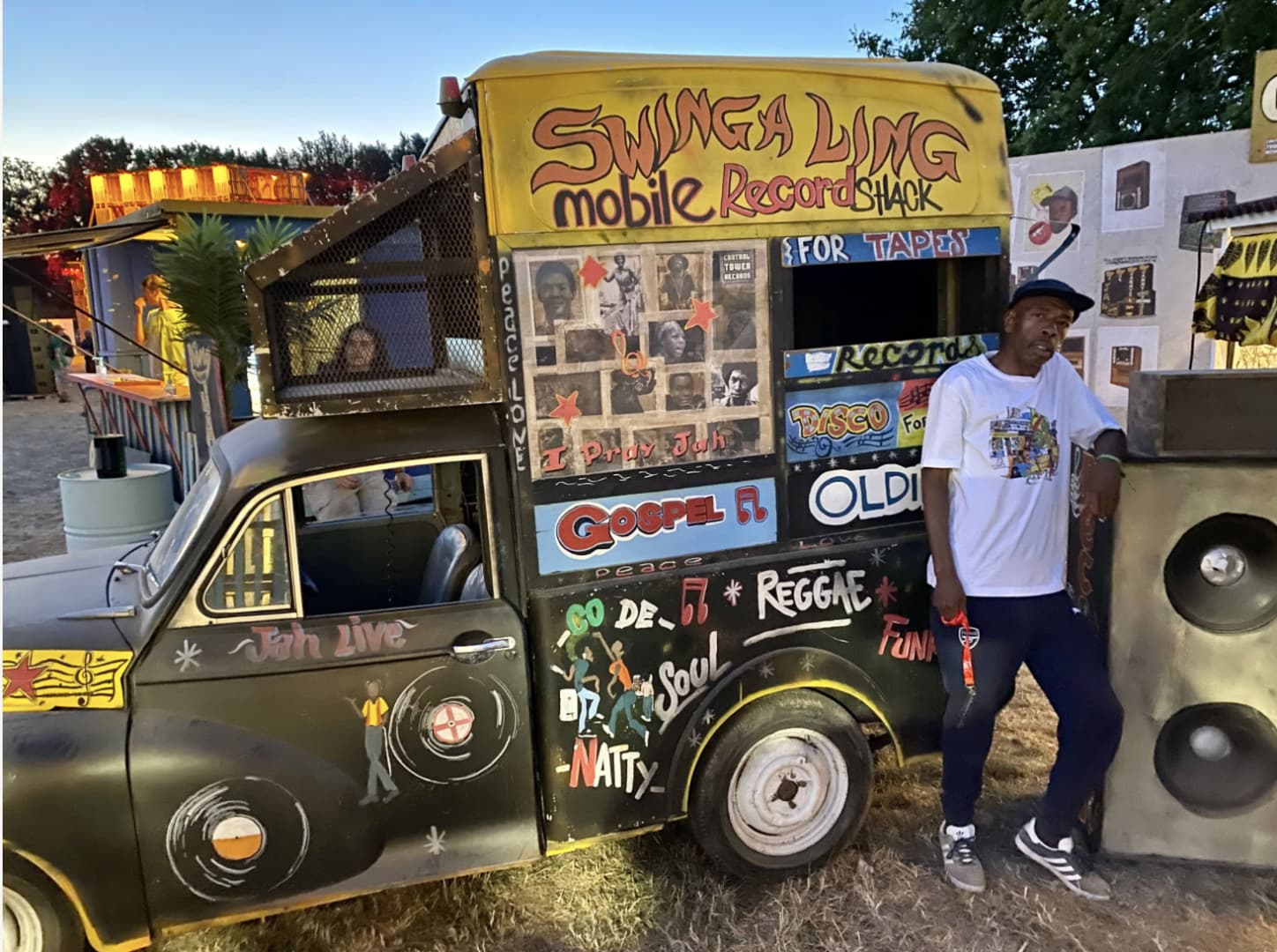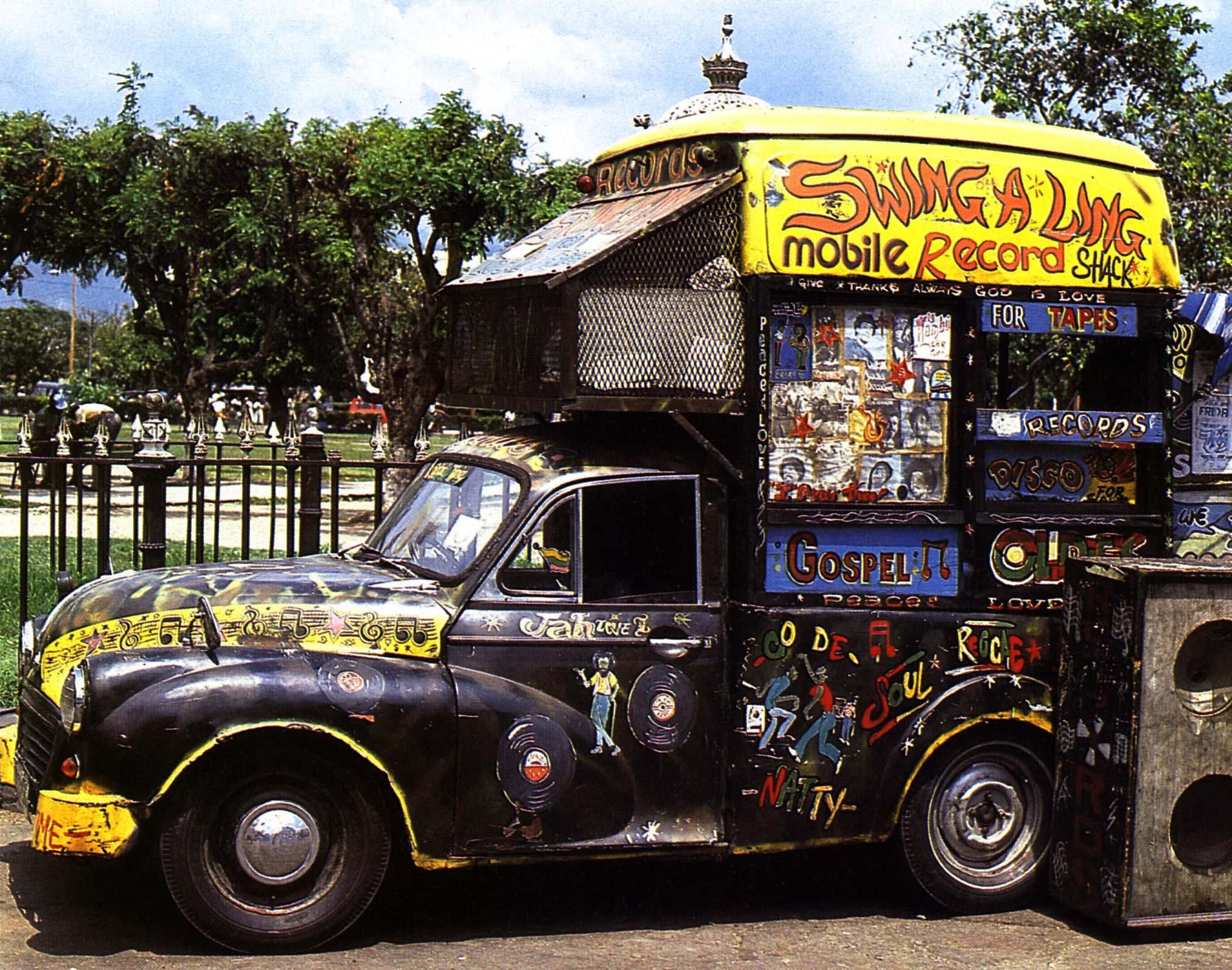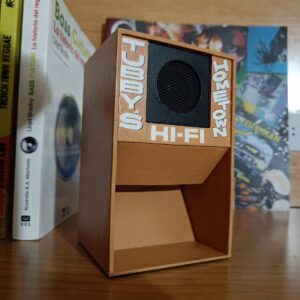Dive into the remarkable story of Charlie Ace, a pioneering figure in Jamaican music history, and his innovative Swing-A-Ling Mobile Record Shack
Valdene Dixon, better known as Charlie Ace, was born on December 27, 1945. While the details of his early life remain somewhat obscure, his impact on the Jamaican music scene from the late 1960s through the early 1980s is well-documented. As a recording artist, producer, and entrepreneur, Ace was instrumental in shaping the sound of reggae and dancehall music. His most innovative venture, the Swing-A-Ling Mobile Record Shack, became a cultural icon, bringing music directly to the people of Kingston.
Charlie Ace: A Musical Pioneer
Charlie Ace began his recording career with the legendary producer Joe Gibbs around 1970. Clearly influenced by U Roy’s early work, Ace recorded several tracks for Gibbs, though only “Seeing Is Believing” was released at the time, credited to “Caly Gibbs” in tribute to the producer. Ace’s collaboration with Gibbs also produced “Ride On Johnny,” featuring fellow toaster Johnny Lover.
Ace then moved on to work with Alvin ‘GG’ Ranglin, achieving his first significant success with tracks like “Ontarious Version,” “Do Something,” and “Lovers Affair.” Initially using the moniker “Grooving Charlie,” he eventually settled on the name Charlie Ace. During this period, he perfected his unique delivery style, which resonated with audiences.
Freelancing with other Kingston-based producers, Ace recorded notable tracks like “Julia Caeser” for Rupie Martin, “Creation Version” for Sonia Pottinger, and “Book Of Books” and “Silver And Gold” for Phil Pratt. His profile rose further after sessions with Lee “Scratch” Perry, resulting in hits such as “The Creeper,” “Django Shoots First,” and “Shocks 71,” a duet with Dave Barker over Bob Marley & The Wailers’ “Small Axe.” A standout from his time with Perry was “Cow Thief Skank,” a duet with Perry that featured early sampling techniques.
The Swing-A-Ling Label and Mobile Record Shack
Around 1972, Charlie Ace launched his own Swing-A-Ling label, releasing a series of ribald chants, including duets with the exotic Fay Bennett. Notable releases included “Mr Whitaker” and “Punany” (renamed “Big Seven” in the UK to capitalize on Judge Dread’s success), “Punany Round Two,” and “Sexy Mania.” Other significant tracks from this era included “Gun Court Affair,” “More Dollars,” “Scaramouche,” and later 45s like “Once Bitten” (featuring Jah Lloyd), “Super Champ,” “Judge Irie,” “Firing Line,” and “Hot Butter Dub.”
After achieving success as a DJ, Charlie Ace decided to take the music to the streets by converting a Morris 1000 van into the Swing-A-Ling Mobile Record Shack. This mobile store allowed him to drive around Kingston, selling the latest records and tapes directly to the people. The venture became a beloved fixture in the community, frequently featured in Jamaican tourist magazines and highlighted in the Channel 4 documentary “Deep Roots Music.”
In an interview, Charlie Ace explained his motivation behind the mobile record shack: “I enjoy playing the music in the ghetto for the ghetto people dem. But right now this way much better you know.” When asked why he didn’t set up a shop, he replied, “The idea came from Jah, and who could argue with that?”
Cultural Impact and Community Engagement
Charlie Ace’s mobile record shack played a crucial role in the dissemination of reggae and dancehall music. During a time when access to new music was limited, the Swing-A-Ling Mobile Record Shack brought the latest hits directly to the people. It also provided a platform for up-and-coming artists to get their music into the hands of influential DJs and sound system operators, thereby shaping the musical landscape of Kingston.
Ace emphasized the importance of connecting with the community, stating, “I can show them where I coming from, same place in the ghetto and show them that can try a thing like I instead of pure M16 and shooting dem own bredren.” His words highlight his deep connection to his roots and his desire to uplift his community through music.
A Tragic End
Tragically, Charlie Ace’s life was cut short when he was shot dead while tending to his mobile record shack in the early 1980s. The circumstances of his death remain a stark reminder of the dangers that can accompany even the most passionate pursuits. After his death, the iconic vehicle began to deteriorate rapidly due to the humid conditions and was last seen in the back of his uncle’s towing shop, slowly succumbing to the elements.
Legacy and Memory
Despite the tragic end, the legacy of Charlie Ace and the Swing-A-Ling Mobile Record Shack lives on. It symbolizes a time when music was not just a product but a vital part of community life. The innovative concept of a mobile record store remains an inspiring story of entrepreneurial spirit and dedication to spreading the joy of music.
Today, the memory of Charlie Ace and his contributions to Jamaican music culture are honored by those who remember the vibrant days of the Swing-A-Ling Mobile Record Shack. His story is a testament to the power of music to bring people together and the enduring impact of those who dedicate their lives to its promotion.
Replicas of the Swing-A-Ling Mobile Record Shack
The legacy of Charlie Ace’s Swing-A-Ling Mobile Record Shack continues to be celebrated today through replicas that have been created to honor this iconic piece of reggae history. Two notable 1/1 scale replicas exist:
- Jamaica: One replica is located at S Foods Jamaica supermarkets. This installation serves as a tribute to Charlie Ace’s innovative spirit and his contributions to Jamaican music culture.
- France: Another replica is featured at the Dub Camp Festival in France, spotted every year inside the Jukebox Arena stage. This replica helps to bring the essence of Jamaican music history to an international audience, celebrating the global impact of reggae and dancehall.






